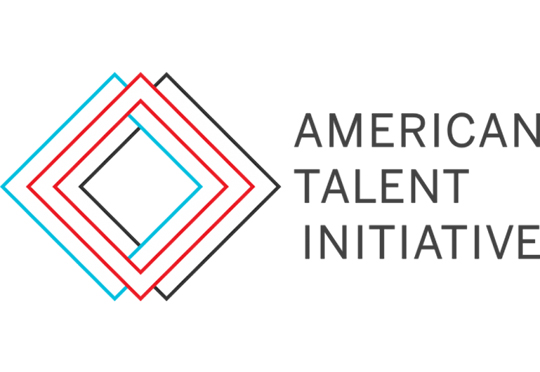 Carl Strikwerda, president of Elizabethtown College, has been invited by Tania Nguyen LaViolet, senior program manager of The Aspen Institute in Washington, D.C., to be part of a July 20 American Talent Initiative (ATI) convening panel of current and former college presidents.
Carl Strikwerda, president of Elizabethtown College, has been invited by Tania Nguyen LaViolet, senior program manager of The Aspen Institute in Washington, D.C., to be part of a July 20 American Talent Initiative (ATI) convening panel of current and former college presidents.
The convening’s focus is to gather senior leaders to discuss concrete ways to increase community college transfer opportunities to colleges and universities with high graduation rates. The gathering follows up on the release of “The Talent Blind Spot”—a research paper that Aspen Institute and the research organization Ithaka published Wednesday, June 27, 2018, on the same topic.
As part of the panel, Strikwerda will discuss Elizabethtown’s ambitious community college transfer goals and help lead a conversation about further developing transfer opportunities to private institutions in Pennsylvania and across the country.
“Every year, more than 50,000 high-achieving, lower-income community college students do not even attempt to pursue a bachelor’s degree,” said LaViolet of Aspen Institute. “That’s an incredible missed opportunity for our communities.
Elizabethtown’s goal of increasing the number of students who transfer from community colleges by 400 percent certainly stands out.”
“To ensure that these students have and are aware of every opportunity available to them, we need the full spectrum of higher education to participate in the national effort to improve transfer—that includes high-graduation rate colleges and universities like the ATI schools, which have historically served fewer community college transfer students in comparison to other four-year institutions,” she said.
“Elizabethtown’s goal of increasing the number of students who transfer from community colleges by 400 percent certainly stands out—especially for a small liberal arts college.”
Because ATI member institutions are heavily represented in the state of Pennsylvania, and many have indicated an interest in prioritizing transfer, Strikwerda wrote about community college transfer students in a Chronicle of Higher Education article in January. In the piece, he noted that the focus on transfer students is not just to increase enrollment at four-year colleges, but to strengthen the overall higher educational system in Pennsylvania.
“Community-college students deserve a chance that they may get only if we, in higher education, commit ourselves to rethinking our practices, removing barriers and replacing ignorance with insight,” Strikwerda wrote. “All of us—and the country—will benefit.
“It is essential that faculty and staff at four-year colleges get to know students, faculty and staff at their partner community colleges. Too many well-intentioned transfer programs have failed because of cultural and bureaucratic misunderstandings. Just as important, continuing-education programs at four-year colleges and universities should be enlisted to help community-college graduates earn their degrees while working full time,” he noted.
A four-year college or university is intimidating for so many young Americans, Strikwerda said. This intimidation is especially high if it involves living away from home, tackling challenging courses in the first semester or taking on loans.
“Community colleges offer students a chance to taste college close to home, with the possibility of taking courses part-time or moving easily from part time to full time and back.”
Joining Strikwerda on the ATI panel are Ángel Cabrera, president of George Mason University; Scott Ralls, president of Northern Virginia Community College, and Karen Stout, president and CEO of Achieving the Dream and president emerita of Montgomery County Community College. Moderating the panel is education writer Adam Harris from the Atlantic.
ATI brings top colleges and universities together with the philanthropy and research communities to expand access and opportunity for talented low- and moderate-income students. By 2025, the organization aims to attract, enroll, and graduate an additional 50,000 lower-income students at the 290 colleges and universities that consistently graduate at least 70 percent of their students in six years. ATI members are a subset of these 290 and include a mix of public and private colleges and universities from all over the country.

